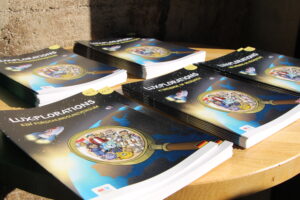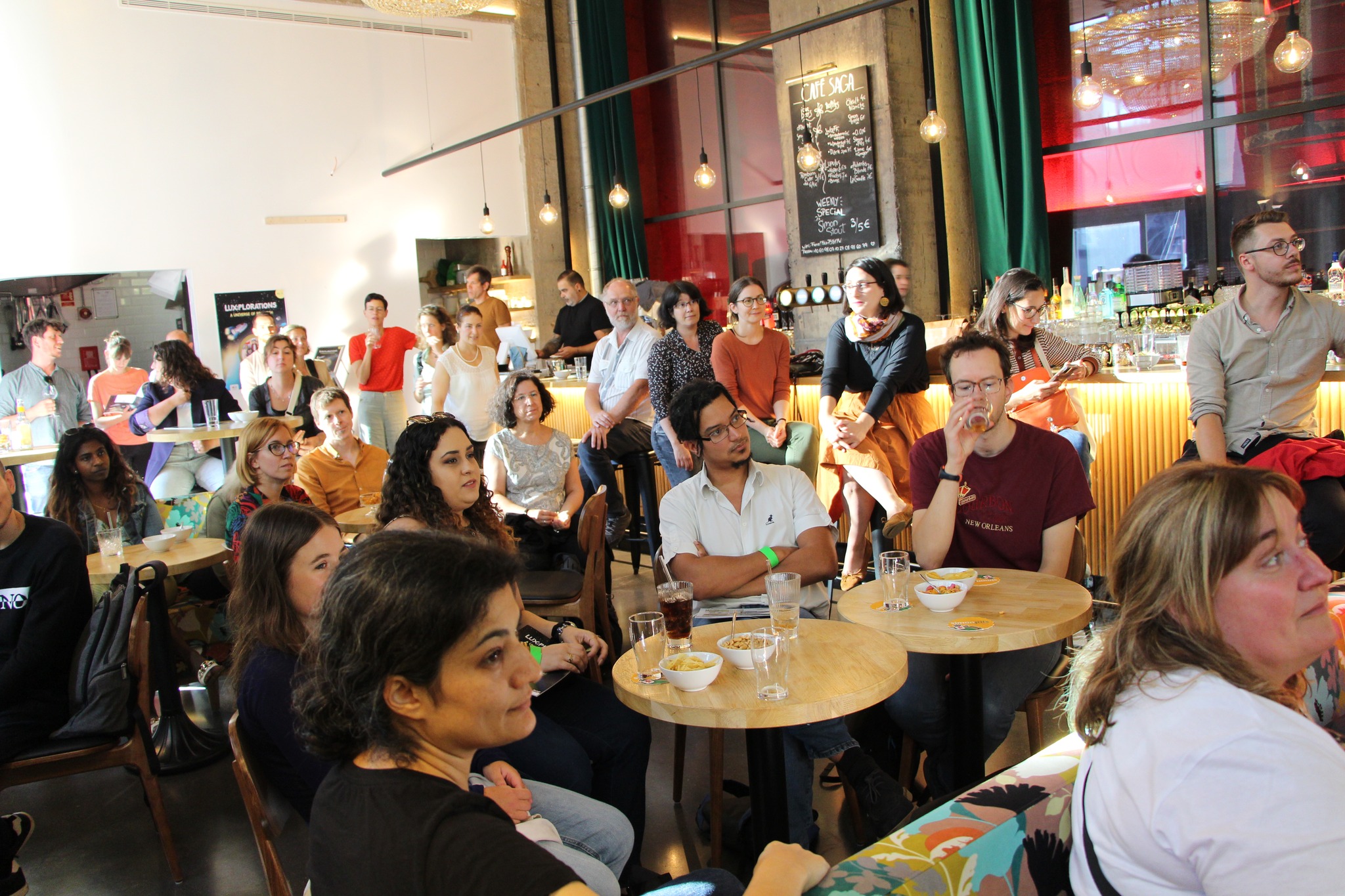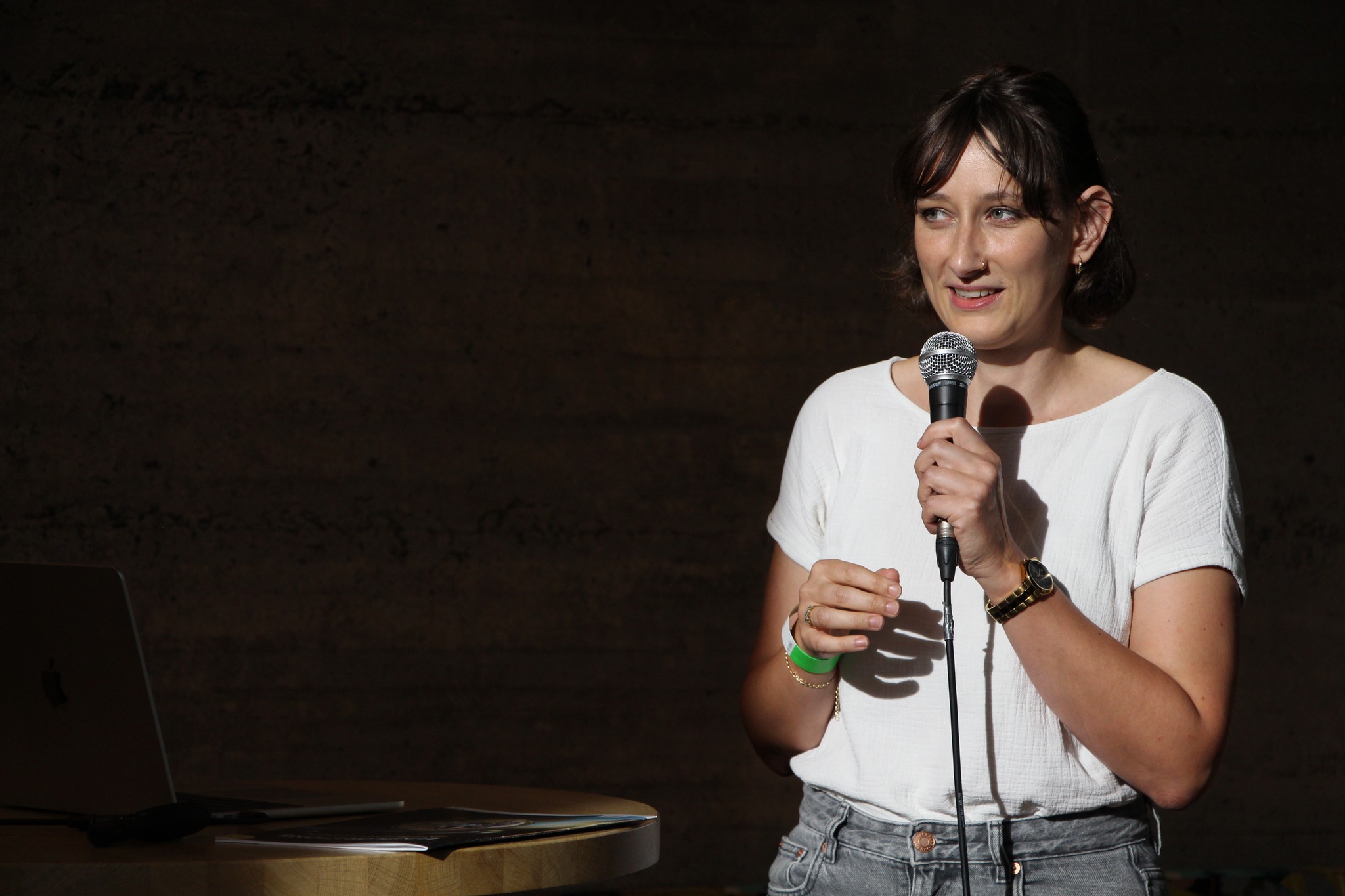The third volume of the University of Luxembourg’s science comic series takes readers to a colony in space and back to earth. Local scientists and artists have teamed up to create four stories about science and research in Luxembourg.
The new edition of “LUX:plorations – A Universe of Research” features comics about artificial intelligence, ADHD, fashion and psychology, quantum physics as well as virtual reality. They were created collaboratively in groups, each of which comprised two doctoral candidates and one local comic artist.
In contrast to the first two editions, the single stories are now twice as long and connected by an overarching story. The latter was suggested by one of the groups, namely Sahar Niknam and Alexis Vandeweerd. Together with the six other doctoral candidates – Angélica Mendes, Félicia Jeanelle, Byjesh Nalini Radhakrishnan, Flaviene Scheidt de Cristo, Daniela Hau and Fabien Bernier – as well as the artists Antoine Grimée, Snejana Granatkina, Nadine Scholtes and Jeff Hemmer, they produced a story of 18 pages in which they explore their research topics in an entertaining way.
The LUX:plorations team
The artistic collaboration was supervised by the organisational team: Veronika Mischitz is a visual storyteller from Germany. She shared her science comic and storytelling expertise with the group in the form of a science comic workshop in which the single groups were formed. Jessica Burton is a comic expert and doctoral graduate from the Luxembourg Centre for Contemporary and Digital History (C²DH). Both mentored the single groups and guided them through the comic creation process.
They also received help from Bruno Teheux, Assistant-Professor at the Department of Mathematics (DMATH), Oliver Glassl, Project Manager at the Faculty of Science, Technology and Medicine (FSTM), Serge Haan, Vice-Dean of the FSTM and PrincipaI Investigator of the Doctoral Education in Science Communication (DESCOM) project as well as Céline Lecarpentier, Project Manager of DESCOM. Valérie Minelli drew some surprises for the third volume as well as a map to explore. The cover artwork as well as the portraits comes from Andy Genen.
Where can I find the comics?
LUX:plorations is available for free and in five languages (English, French, German, Luxembourgish and this time also in Portuguese). It can be downloaded via this dedicated website. Hard copies of the comic can be found on the University’s campuses, for instance at the Luxembourg Learning Centre, the Maison des Sciences Humaines and the Maison du Savoir Auditoires on Belval Campus, the JFK building on Kirchberg Campus or at the Luxembourg Science Center (from 22 September on). The comics will also be present during the Luxembourg International Science Expo 2023 (open for the public on 30 September) as well as the Science Festival 2023 (11/12 November) in Luxembourg, where you can pick up your own copy of LUX:plorations and take some more for your friends.
Hands-on science activities
There’s even more! You can explore some of the topics mentioned in the comics via hands-on science activities during various exhibitions and events. You can for instance put yourself into the shoes of a person with ADHD, test Virtual Reality or learn more about AI in the context of a science comic exhibition at the Luxembourg Learning Centre in October.
Do you want to have your own comic-style portrait? A free “Fortific(a)tions” comic book? Or explore science by yourself at the Luxembourg Science Centre? Then participate in our lottery. All you have to do, is let us know how you like the comic by participating in this online survey and leaving your contact details at the end.
—–
LUX:plorations is supported by the Luxembourg National Research Fund (FNR) and was made possible thanks to the Faculty of Science, Technology and Medicine (FSTM) as well as the Doctoral School in Humanities and Social Sciences (DSHSS) of the University of Luxembourg. It was produced under the lead of DESCOM, a project initially supported by the Luxembourg National Research Fund (FNR) that aims to support interactions between academia and the public by providing different modes of training in science communication as well as organising and supporting outreach activities.







